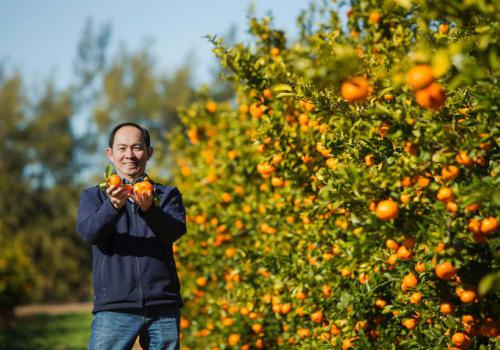Australian food exporters are being caught in a global supply chain crunch as a shortage of food-grade shipping containers drives up costs and slashes the shelf life of fresh produce. After the grounding of international airlines all but crushed the air freight trade, many producers looked to the sea as an avenue to the market. But that channel is narrowing as global container shortages and booming consumer demand blow out transit times. The container shortage is also compounding the challenges faced by exporters, who are experiencing significant delays at international ports because of stringent COVID-19 management protocols.
Short shelf life
The WA Meat Marketing Cooperative (WAMMCO) exports premium lamb products to international markets, including the United States. It is facing delays of about 10 days to secure appropriate containers for key export markets. "Shipping around the world is happening very slowly, so we are having a lot of difficulties getting chilled product to our markets in adequate time to fill our shelf life in supermarkets," WAMMCO chairman Craig Heggaton said. "It's hard enough getting hold of the container, then it gets to the port and sits there for an extra 10 to 20 days … so that's less time on the supermarket shelf life before it expires. "If it sits at Fremantle for another 20 days, plus 30 days on a boat, we've only got a 70 or 80 day product — that leaves 30 days on a shelf.
Desperate measures
Mr Heggaton said the cooperative had taken extreme measures to ensure products were getting to market on time. "At the moment we're actually trucking some containers to Adelaide or Sydney to catch a boat in a more adequate timeframe, but that is obviously costing us quite a lot," he said. "There are times where we might airfreight some of this product, which is obviously a very expensive option — but even air freight is hard to come by because of the lack of flights." It is not just meat exporters facing lengthy shipping delays and difficulties getting their hands on food-grade containers. One of WA's biggest citrus producers, Agrifresh, had to scale back its export program by about 40 per cent last year because of the supply chain and logistical challenges.
'Very concerning'
Agrifresh managing director Joseph Ling said the company had already started planning its shipping stem for the 2021 season, despite picking still being several months away. "This shortage is going to be impacting us in a huge way, because we can't put our fruit into frozen containers or the general freight containers," he said. "Together with other exporters, we are in a very concerning situation. "We are concerned that not only when we need the container it's not there, but we need the quantity of containers to have on the boat for us to be able to make bookings." Mr Ling said Agrifresh was developing its plans as early as possible to avoid delays. "This year we have a little bit more lead time knowing our season is coming and we are in advanced conversations, as early as January, to discuss our freight forwarder and shipping company to look at the demand," he said.
